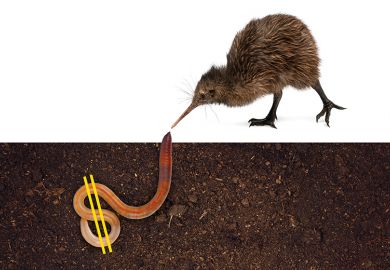Australian students appear certain to be required to repay their tuition loans more quickly, after legislation to lower the repayment threshold passed the country’s senate on 13 August.
The “student loan sustainability” bill now only needs to pass the house of representatives, where the Liberal-led governing coalition has a majority. That is expected to happen on 14 August.
The bill lowers the income threshold at which former students must start repaying their debts from the current A$55,874 (£31,879) to A$45,880 from the middle of next year. It also changes the indexation formula applied to the threshold so that it will rise more slowly than it has in recent years.
An independent senator’s attempt to set the threshold at A$50,000 was voted down, while a rival amendment to set it at A$30,000 did not reach a vote. But an amendment to eliminate a 25 per cent loan fee extracted from students at a handful of “Table B” institutions, including private Bond University and the University of Notre Dame Australia, was successful.
The bill has won senate approval on the day that survey results emerged showing that many students were living below the poverty line.
“This is yet another attack in the Liberals’ war on young people,” said Mark Pace, the president of the National Union of Students. “Students are calling on Labor and the Greens to do the right thing and make an election promise to reverse the crooked bill.”
However, by international standards, the repayment arrangements will be relatively benign. Graduates across the Tasman Sea in New Zealand are forced to pay back their student loans at a rate of 12 cents for every dollar earned above just NZ$19,448 (£10,035). Australian graduates earning A$45,000 face a repayment rate of just 1 per cent a year.
The bill also prevents students from accumulating debts of more than A$104,400, or A$150,000 in the expensive disciplines of medicine, dentistry and veterinary science. The Council of Australian Postgraduate Associations said that this measure would lock 30,000 Australians out of postgraduate study unless they could afford tens of thousands of dollars in upfront fees.
“The government has ignored this evidence and pushed through this legislation despite widespread outrage from students and the sector,” said CAPA president Natasha Abrahams.
Register to continue
Why register?
- Registration is free and only takes a moment
- Once registered, you can read 3 articles a month
- Sign up for our newsletter
Subscribe
Or subscribe for unlimited access to:
- Unlimited access to news, views, insights & reviews
- Digital editions
- Digital access to THE’s university and college rankings analysis
Already registered or a current subscriber?








